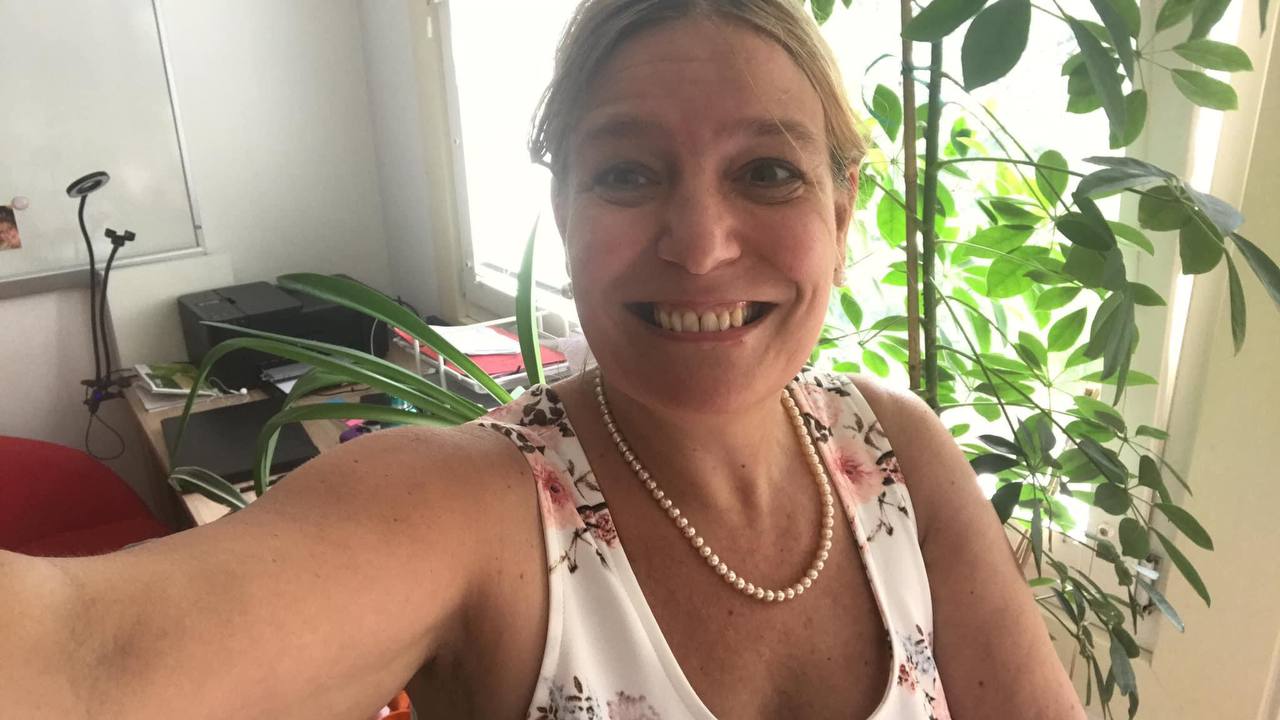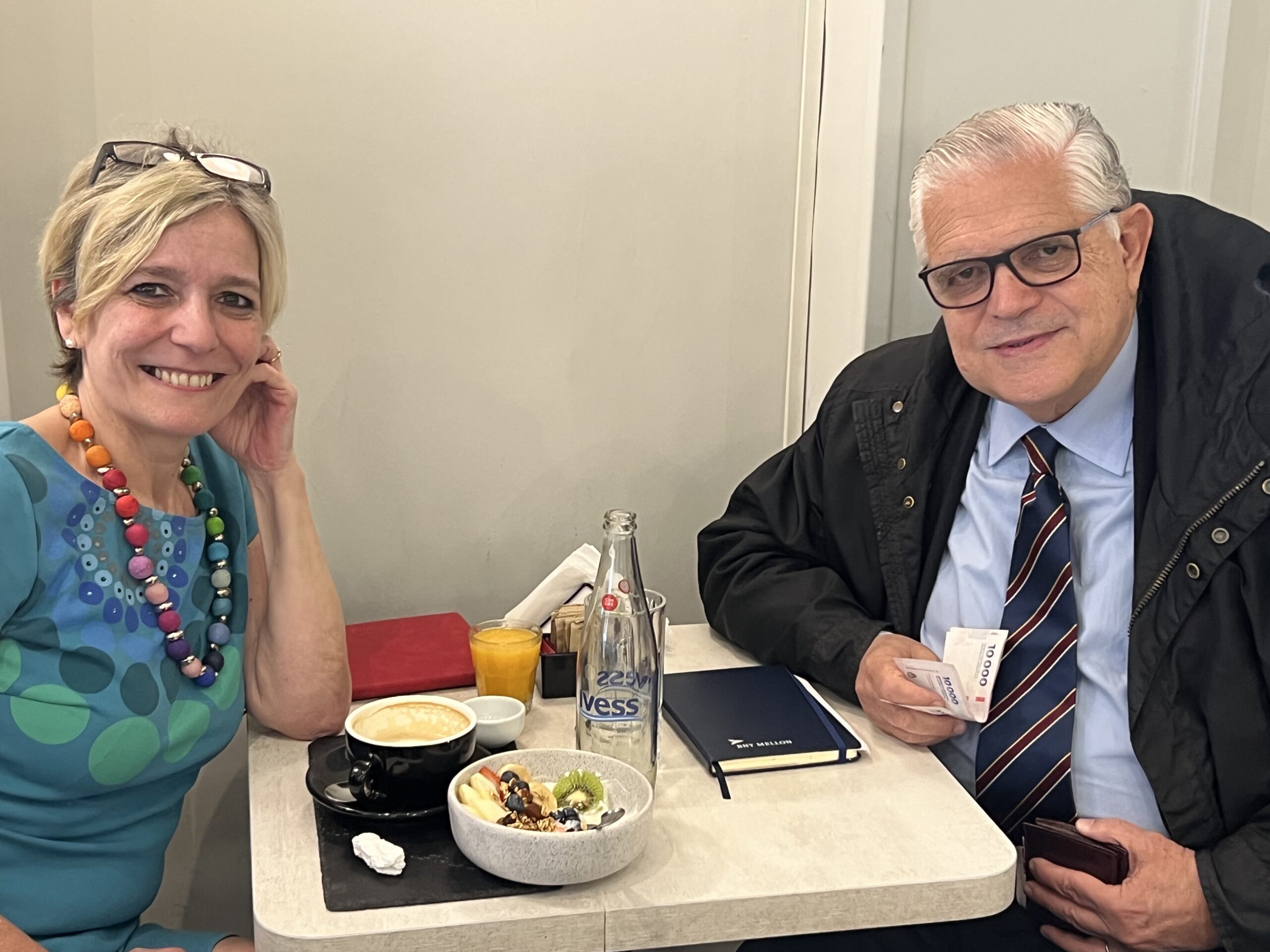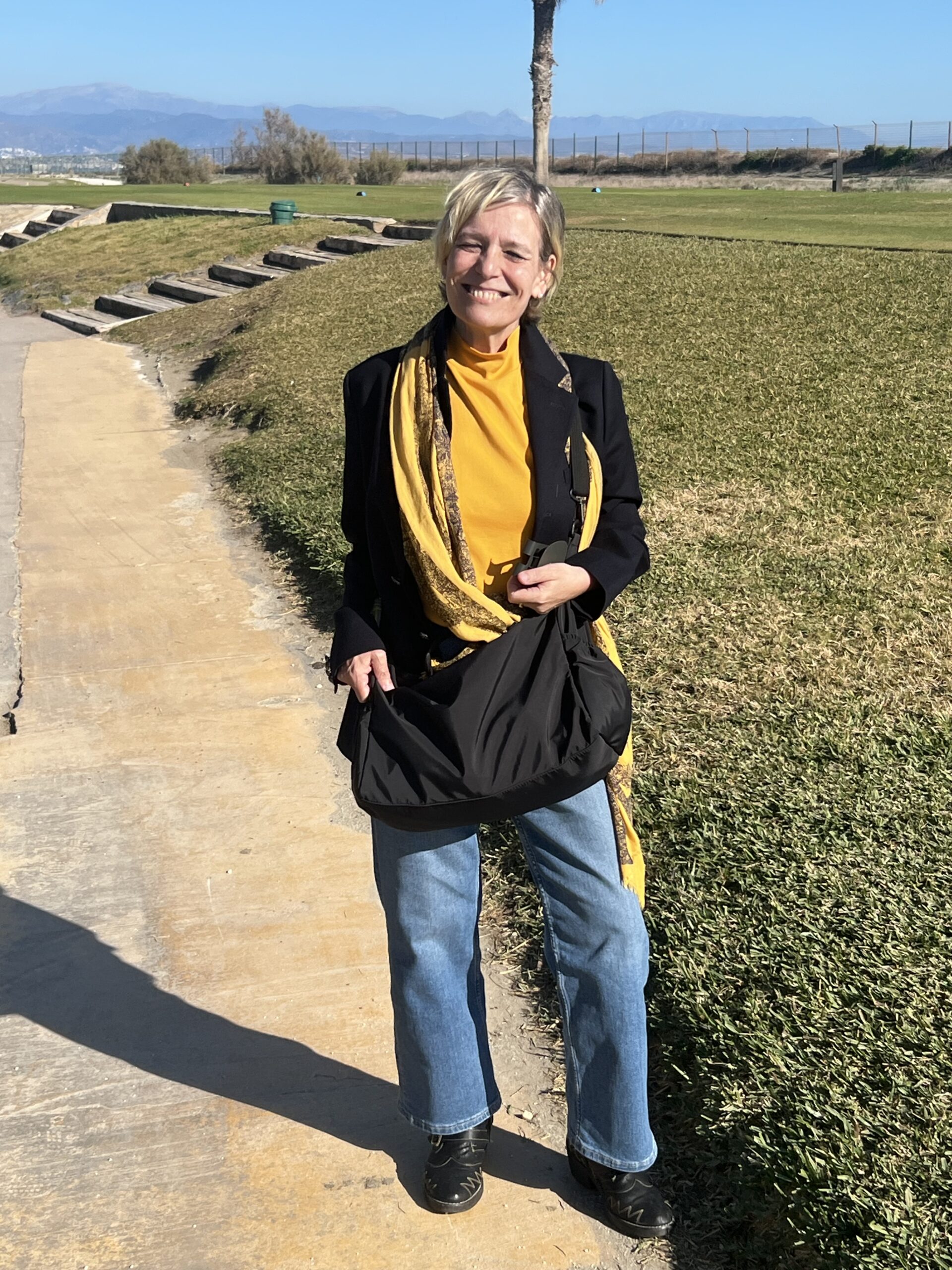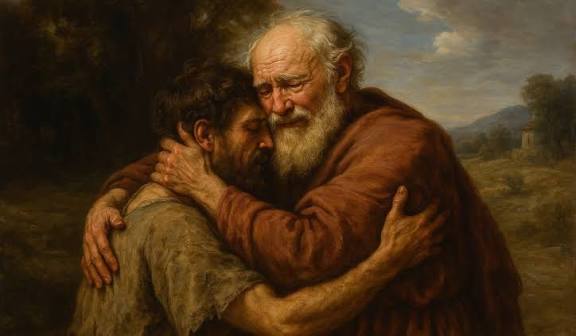
Although I always conduct political interviews and analyze the behavior of politicians and analyze cultures and various political ideologies in a social context, I am very attracted to the analysis of the media and people beyond.
I did not study psychology to sit on a couch and listen to other people’s problems. It may be on certain occasions, that I try to find the different characteristics of human beings.
That is to say, thinking with the keyboard in my hand, very different thoughts cross my mind. And how difficult it is to describe the human being in his total identity and complexity.
One of the many questions I ask myself: What is the essence of the human being? What defines us and differentiates us from animals? Why does evil exist in people? Are they causes of a history that we are inheriting?
We have spent so many years in the field of psychology and today the so-called Neurosciences, studying and investigating human behavior, and seeking to find an answer to so many questions that we human beings ask ourselves: where we come from, what is the mission in our life, on this earth…
I am an eternal lover of life, of love, of the discoveries of people’s souls. I surely escape from my own reality in these escapes through writing and reading.
It would be great to exchange experiences and knowledge with people from different cultures, different continents and different generations. But everything leads me to think that the world itself lives in a virtual ideology. Do we lose contact with the real world, just because we connect for hours to write and research? Will we remain the same beings? How will our personalities be defined by this change?
How many questions we ask ourselves and do not end up answering. I am a person mostly of the concrete, the real. But in reality I try to insert myself in the world of producers, writers and painters and try to find through their works of art, what is the message they want to leave. Everything is art in life: from the walk of a little dog wagging its tail, the drawing of a small child, the phrases of a person…
But today, more than anything else, I would like to internalize the topic WHAT IS IN OUR IDENTITY?
I invite you to read this article, which will surely help you find an answer to the many questions we ask ourselves as human beings.

Karin Silvina Hiebaum / Editor, writer, psychologist
The essence of the human being: A journey towards self-discovery in Psychology and the Human Mind
The essence of the human being is a fascinating topic in the field of Psychology and the human mind. Throughout history, there has been debate about what defines us as individuals and what differentiates us from other living beings. In this sense, self-discovery plays a fundamental role, as it allows us to explore our own identity and better understand our essence.
Self-discovery involves immersing ourselves in an inner journey, exploring our emotions, thoughts and experiences. It is an introspective process that helps us understand our motivations, desires and goals in life. Through self-discovery, we can learn to know ourselves in depth, accepting our virtues and defects, and building a solid self-image.
In Psychology and the Human Mind, self-discovery is considered essential for our personal development. It gives us the opportunity to connect with our true selves, freeing us from social expectations and allowing us to make decisions in accordance with our values and needs. In addition, self-discovery enables us to establish more authentic and satisfying relationships, because by knowing ourselves better, we can communicate more effectively and understand others better.
It is important to note that self-discovery is an ongoing process. As we evolve throughout our lives, our priorities and goals may change. Therefore, it is essential to remain open to new experiences and be willing to question our beliefs and assumptions. Through this journey of self-discovery, we can achieve a greater sense of well-being and fulfillment.
In conclusion, self-discovery is an exciting process that allows us to explore our essence as human beings. In the context of Psychology and the human mind, this inner journey gives us the opportunity to know ourselves in depth, accepting our strengths and weaknesses. It is a path to a more authentic and fulfilling life, where we can establish more meaningful connections with others.
What is the essence of being human? Give me examples.
The essence of the human being in the context of Psychology and the human mind lies in its capacity to think, feel, act and relate to others. Below, I will give you some examples of this:
- Consciousness: human beings possess the capacity to be aware of ourselves, our emotions, thoughts and actions. This awareness allows us to reflect on our identity, make decisions and learn from our experiences.
- Emotions: Human beings experience a wide range of emotions, such as joy, fear, sadness or love. These emotions influence the way we perceive and react to our environment and have a significant impact on our emotional and mental well-being.
- Cognition: Human beings have superior cognitive abilities, such as memory, reasoning, attention and language. These faculties allow us to process information, solve problems, communicate and acquire knowledge throughout our lives.
- Will and free will: Unlike other living beings, human beings possess the ability to make conscious decisions and direct our actions according to our own desires and goals. Our will and free will allow us to adapt to our environment, pursue our dreams and build our own reality.
- Social relationships: Humans are social beings by nature, we need to establish emotional bonds and relate to other individuals. Our social interactions influence our psychological development, our capacity for empathy and the way we perceive ourselves in relation to others.
- These are just a few examples of the essence of being human in the context of psychology and the human mind. Each individual is unique and complex, so there are many other characteristics and aspects to consider in the study of the human mind.
What is the real essence of the human being?
The real essence of the human being, from the perspective of Psychology and the human mind, can be understood as a combination of different elements that characterize us as individuals and allow us to develop our identity and potential.
First of all, it is important to emphasize that the human being possesses a unique and complex mind. Our ability to think, reason, imagine and reflect differentiates us from other species and allows us to adapt to our environment in a conscious and intelligent way. The human mind is a fascinating and constantly evolving phenomenon.
Moreover, human beings are social beings by nature. From the moment we are born, we establish connections with other people, forming meaningful relationships and building our identity through interaction with others. Our need to belong and relate to others is fundamental to our emotional and social well-being.
Another relevant aspect is the capacity we have to feel and experience emotions. Emotions are psychophysiological responses that allow us to perceive, interpret and react to stimuli and situations. They are an essential part of our lives and help us to understand our own needs, motivations and internal states.
Finally, human beings are characterized by their capacity for self-transcendence and the search for meaning. Unlike other species, we question the purpose of our existence and seek to find meaning in our lives. This search for transcendence drives us to develop our talents, set goals and find purpose in our actions.
In summary, the real essence of the human being in the context of psychology and the human mind lies in its capacity to think, relate to others, experience emotions and search for meaning in life. These aspects constitute our identity and allow us to develop as unique and self-aware beings.
In an exchange with a very well read friend of mine, whom I appreciate very much, I asked him: Which is your favorite author? He answered me that one of them would be Gabriel Garcia Marquez. A great Colombian writer. I loved this writer’s book «CIen anios de Soledad» that really represented the existence of the human being and in front of a political situation of the moment.
And here I share a couple of reflections on the meaning of this author’s life.
This March 6, 2019 marks the ninety-second anniversary of the birth of Colombian writer and journalist Gabriel García Márquez, winner of the 1982 Nobel Prize in Literature. At the Gabo Center we have prepared an anthology of eleven phrases of his about life. We share them with you:
- The life you remember
Life is not the life you lived, but the life you remember and how you remember it in order to tell the story.
Living to tell the tale, 2002.
- Life always wins against death
Neither floods nor plagues, neither famines nor cataclysms, not even eternal wars through centuries and centuries have managed to reduce the tenacious advantage of life over death.
The Loneliness of Latin America, December 1982.
- The secret of longevity
Always do what you like, and only do what you like, is the master formula for a long and happy life.
A manual for being a child, 1995.
- The response
In the face of oppression, plunder and abandonment, our response is life.
The Loneliness of Latin America, December 1982.
- A good life program
From the age of 50 onwards, birthdays are celebrated by decades. Well, if you see that you are approaching the limit of the horizon, this has an advantage: after 70 you know that you cannot miss a shot, you must be absolutely accurate, and that is a very good life program. You can no longer afford the luxury of wasting punches.
«The writer in his labyrinth». Gente, September 1996.
- From life to death
We have an almost irrational love for life, but we kill each other for the desire to live.
Por un país al alcance de los niños, July 1994.
- A prodigious adventure against arms
A great novelist of our time once wondered if the earth is not the hell of other planets. Perhaps it is much less: a village without memory, left by the hand of the gods in the last suburb of the great universal homeland. But the growing suspicion that it is the only place in the Solar System where the prodigious adventure of life has taken place, drags us mercilessly to a disheartening conclusion: the arms race is going in the opposite direction of intelligence.
A good life program
From the age of 50 onwards, birthdays are celebrated by decades. Well, if you see that you are approaching the limit of the horizon, this has an advantage: after 70 you know that you cannot miss a shot, you must be absolutely accurate, and that is a very good life program. You can no longer afford the luxury of wasting punches.
«The writer in his labyrinth». Gente, September 1996.
From life to death
We have an almost irrational love for life, but we kill each other for the desire to live.
Por un país al alcance de los niños, July 1994.
A prodigious adventure against arms
A great novelist of our time once wondered if the earth is not the hell of other planets. Perhaps it is much less: a village without memory, left by the hand of the gods in the last suburb of the great universal homeland. But the growing suspicion that it is the only place in the Solar System where the prodigious adventure of life has taken place, drags us mercilessly to a disheartening conclusion: the arms race is going in the opposite direction of intelligence.
Damocles’ cataclysm, August 1986.
Daily life that goes beyond reality
The determining reserve of Latin America and the Caribbean is an energy capable of moving the world: the dangerous memory of our peoples. It is a culture of daily life that expresses itself in the imagination of the kitchen, the way of dressing, the way of life of the people.
An ancient life reduced to nothing by war
Since the appearance of visible life on Earth, three hundred and eighty million years had to pass for a butterfly to learn to fly, another one hundred and eighty million years for making a rose with no other commitment than to be beautiful, and four geological eras for Human beings, unlike the pithecanthropic great-grandfather, were capable of singing better than birds and dying of love. It is not at all honorable for human talent, however, to have conceived the way in which such a wasteful and colossal multi-millennial process can return to the nothingness from which it came by the simple art of pressing a button.
The Cataclysm of Damocles , August 1986.





